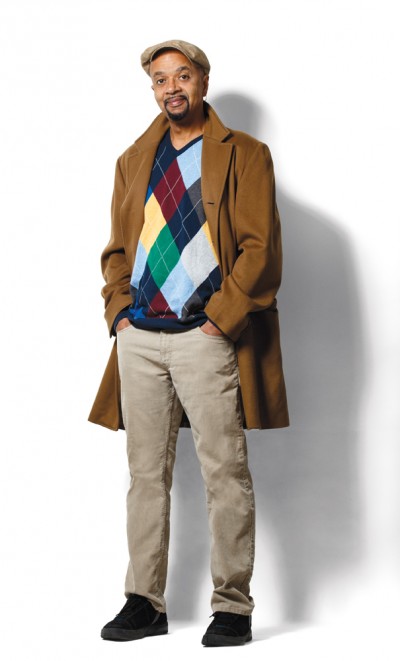We Want Answers: James McBride
 Congratulations on your National Book Award. Thank you.
Congratulations on your National Book Award. Thank you.How does it feel to beat out George Saunders, the man who, according to the New York Times Magazine, wrote “The Best Book You Will Read All Year”? Maybe that is the best book you will read all year. But it doesn’t matter to me. Look, I’ll put it this way: I don’t read reviews at all. Even my own. I don’t pay attention to what other people do. It’s not healthy for me, because invariably, these kinds of discussions boil down to someone saying, “Well, I didn’t like this, and I didn’t like that.” I haven’t read George Saunders’s book, but I know he’s a very gifted writer.
Did Thomas Pynchon, another finalist, come to the ceremony in November? I hear there are some folks who have been looking for him for 40 years. [laughs.] You know, more power to him. He writes well enough that he doesn’t have to show up.
Your book tells the story of a young slave embedded in the army of abolitionist John Brown. There’s been a recent slew of books and movies about Lincoln, the Civil War, slavery. Did you see 12 Years a Slave? No, I didn’t see it. I read the book.
Django Unchained? Yeah, I did see that. I thought it was an entertaining movie. I mean, I’m happy to see anything open up the window to that world, because for years we’ve just been living with this kind of mythology about what happened in this country between 1619 and 1900. You know, the Wild West, the settlement of the West, the cowboys shooting it out. Invisible Indians and invisible black people and largely invisible women unless they were in Little House on the Prairie.
There’s a passage in your book where someone tells John Brown, “I don’t like slavery. But I don’t like killing.” Brown strikes me as a more morally ambiguous character than, say, Abraham Lincoln, who is now lionized by everyone who wishes not to be exiled from polite society. I think John Brown is a very heroic person. The act of improving American society, or improving any society from where you are, requires some level of boldness and some level of creativity and intelligence and planning, and John Brown had all of these things and more.
At the National Book Awards ceremony, you told a story about the novelist E.L. Doctorow getting booed at Hofstra University for discussing his opposition to the Iraq war. I’m surprised, because I had heard you don’t like to discuss politics. I don’t. But so what, you know? I don’t like to discuss politics, but E.L. Doctorow’s special. And it was horrible that that happened to him. Just because I don’t like to discuss politics doesn’t mean I won’t do it.
You used to be a reporter. Is it more lucrative to be a novelist these days? Asking for a friend. Well, for me it is.
You’re also in a band. Yeah, a couple of them. I used to play sax in the Bing Bell Band, which was made up of Philadelphia Inquirer writers. But they haven’t done a gig in a while.
Who was in it? Oh, I can’t remember now, they’ve all moved on. Tim Weiner. I think Bing Bell was a photographer at the Inquirer. [ed: He was.]
Your book Miracle at St. Anna was turned into a Spike Lee joint. You also produced Red Hook Summer, about your native Brooklyn, with Lee. Have you gotten any calls yet about The Good Lord Bird? No one’s called and said, hey, I’m Robert Redford and I want to make this into a movie. But look, if you write a book because you want someone to turn it into a film, you’re making a mistake.
This piece ran in the January 2014 issue of Philadelphia magazine.


